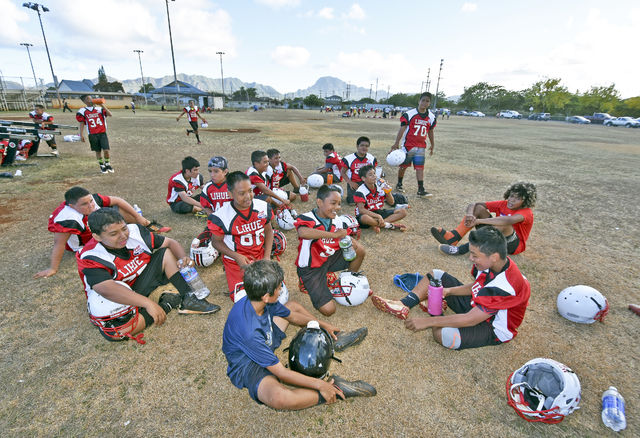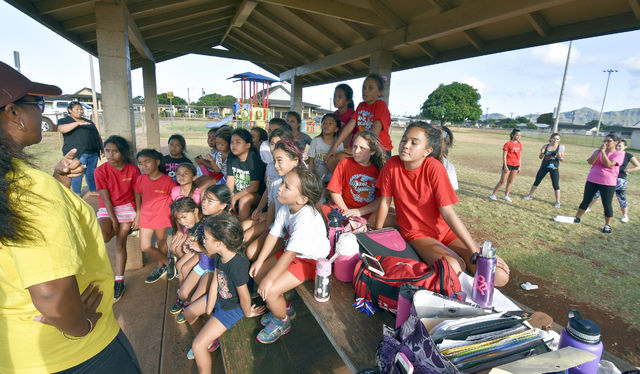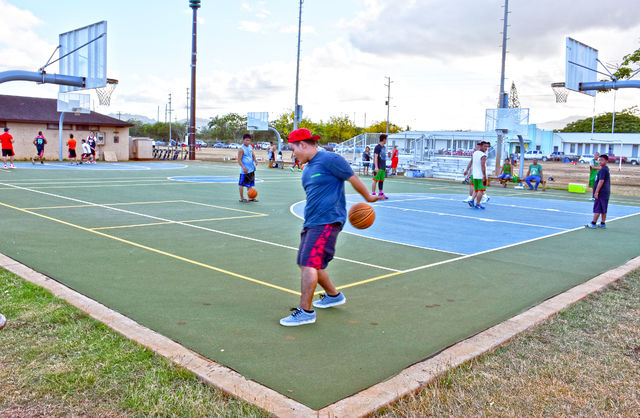LIHUE — The fight over how much money to set aside for the county’s Open Spaces Fund is not over.
On Wednesday, Councilman Gary Hooser will introduce a resolution that, if approved, will ask voters in the 2016 election to decide whether to amend the county charter in order to permanently increase the amount of money specifically earmarked for the fund.
The move comes as a direct response to action the mayor and a majority of the Kauai County Council took earlier this year when they reduced the amount of money directed into the account to the minimum required by the county charter in order to help balance the budget.
Right now, 0.5 percent is allocated. Previously, it was 1.5 percent.
“This is the only fund that is dedicated toward assets that last forever,” Hooser said. “I believe strongly it needs to be increased.”
Reducing annual contributions to the minimum freed up about $1 million so that funds could be redirected to help offset the deficit during the 2015-2016 fiscal year.
But the split decision sparked debate among councilmembers about priorities.
The Public Access, Open Space, Natural Resources Preservation Fund is essentially a piggy bank set up to save money so the county can purchase land for public use, such as ensuring beach access, preserving historic sites and protecting environmentally sensitive areas.
Hooser originally proposed the idea more than a decade ago during his first stint on the council, and voters approved it in 2002.
The county charter now requires a minimum annual contribution set at 0.5 percent of real property tax revenues. In 2012, the amount that was earmarked for the fund was upped to 1.5 percent of revenue generated from property tax collection, helping to bring in about $1.5 million per year and boost the overall fund balance to $4.9 million as of 2014.
But the increase was done through an ordinance change, not a charter amendment, and therefore could be reversed. It was in May when the council voted to lower contributions back to the minimum amount at Mayor Bernard Carvalho Jr.’s urging.
Carvalho said he is pleased the fund has been utilized to purchase spaces for future generations, including the Hodge parcel in Hanalei resulting in the expansion of Black Pot Beach Park.
He said the charter amendment approved by voters spells out that the county has to at least hit the required minimum, which it has.
“I believe this is sufficient guidance and gives the administration the flexibility to address the increases in the cost of government without further increasing real property tax rates, which we were able to achieve with the FY 2016 budget,” he wrote in a statement.
Some public park users said Monday if the county wanted to dedicate more money to open space, there would be plenty of good things it could go to.
“We make do with whatever is available. However, there could be improvements,” said Arnold Cruz, president of Lihue Pop Warner Association. “If the county wants to spend money, maybe they can get a park just for the B&G Club, who have a lot of kids.”
Bernie Battulayan, president of the Kauai FilAm Basketball Association, said hoops would be nice to see.
“We need a gym in Lihue to go along with the one in Kilauea and Kalaheo,” Battulayan said. “There is no gym in Lihue.”
Councilmembers Arryl Kaneshiro, KipuKai Kuali’i, Ross Kagawa and Mel Rapozo voted to lower the contribution rate earlier this year, citing the need to reduce spending in order to balance the budget.
Calls to Kaneshiro, Kuali’i, Kagawa and Rapozo were not returned Monday.
Councilmembers Hooser, Mason Chock, and JoAnn Yukimura voted against reducing contributions to the fund, arguing that there were other ways to balance the budget.
Now Hooser is hoping voters will get a chance to decide how much money they want to go into the Open Spaces Fund for themselves. Putting a proposal to amend the charter on the ballot requires a minimum of five votes from the seven member council, one more than the usual four votes needed to approve a bill.
“All of them have said the people should be able to decide ballot initiatives,” Hooser said referring to the councilmembers who favored putting the issue of repealing councilmember term limits to a public vote. “So I’m hoping if they feel that way about term limits, they would feel that way about allowing the people to decide whether to increase the Open Spaces Fund.”
If voters choose to support the ballot initiative, it would not take effect until the 2017-2018 fiscal year.




